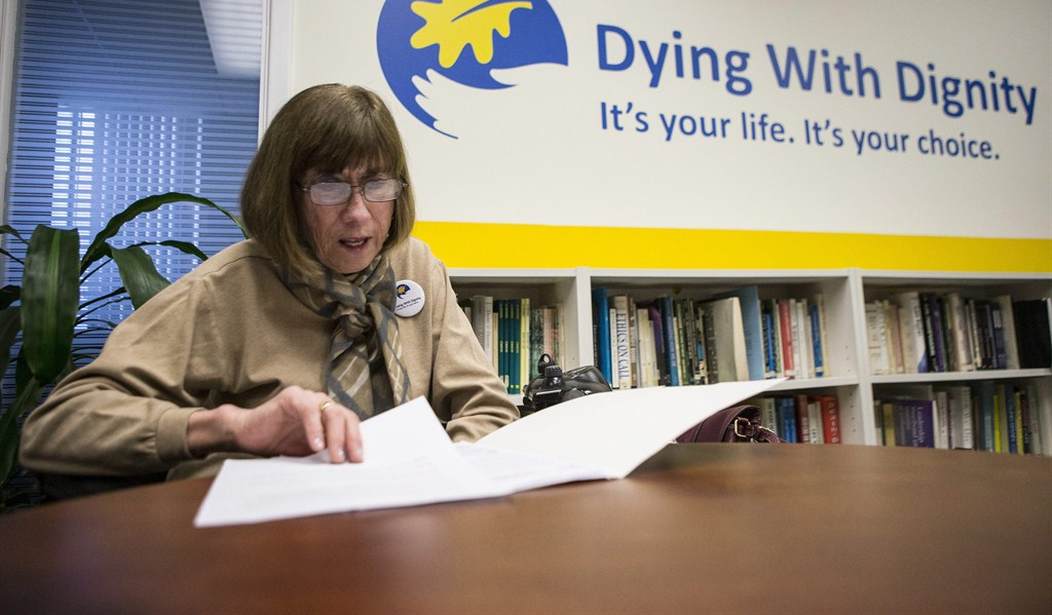"It's scary and it knocks the breath out of you."
Maggie Karner is not unrealistic or "romantic" about death and dying. And she should know.
"It takes a long time to come to terms with a disease -- especially a terminal illness. And then you start thinking; 'OK, this is the new me. This is the new normal. And I can still appreciate every moment.'"
Earlier this spring, when I co-hosted a National Review Institute panel on assisted suicide with Ryan T. Anderson of the Heritage Foundation, we began it with a video of Karner. No speech is as compelling as her testimony.
Karner is dying. Last year, she was diagnosed with brain cancer. After chemotherapy and radiation, the cancer cells are growing again. Karner has seen tragedy before. In the video from the Patients Rights Action Fund, Karner talks about her father, who suffered an injury to his spine.
His accident was devastating. He became quadriplegic, after leading a very active life. Karner's family wondered how he was "going to exist without the use of his arms and legs."
But "he settled in very gracefully," Karner says. And the family greatly benefited from watching his struggle.
"We learned a lot. It was a gift that our Dad gave to us." He showed her that life doesn't have value because of what we can do. "I saw with my two eyes, what joy can still be found in just valuing every moment. It doesn't mean it's going to be great. It doesn't mean it is going to be romantic. But there are moments that need to be cherished.
"He left us a legacy with the time that he gave us," Karner explains on the video. "He could have checked out right away and said 'I'm done with this.'" Instead, "My dad showed me not just how to live and how to do stuff and how to be productive. He showed me how to die with grace and dignity."
Recommended
Six in 10 Americans do not support assisted suicide, according to a new Marist poll commissioned by the Knights of Columbus, and a large majority -- including supporters -- has deep concerns about the effect it will have on the practice of medicine. This is despite well-funded campaigns that insist that assisted suicide should be a free choice and is a matter of "mercy" and "dignity."
But physician-assisted suicide is based on the lie that some lives are unworthy to be lived. And that notion has grave implications for health care in America.
"A commitment to never participate in assisted suicide is essential for the possibility of doctors continuing to care well for patients who are dying," one of our panelists, Farr Curlin, a professor at Duke University School of Medicine, argues.
"The commitment to not kill our patients or help them kill themselves is an essential guard against the temptation to get rid of a patient's suffering by getting rid of the patient."
The Marist poll shows that very few people consider legalizing physician-assisted suicide a priority. So why is it being considered in almost 20 states this year?
A lot of the media coverage of assisted suicide has profiled beautiful young women, points out Sr. Constance Veit of the religious group Little Sisters of the Poor. But it's the people her organization serves in over 30 nations who are most affected by assisted suicide's implications -- the elderly. She tells of family reconciliations that have happened during final days, with "the room of a dying person almost (becoming) the spiritual center of our house at that point."
What legacy will we leave here? Assisting the suicide of medicine or cherishing life, especially the lives of the most weak and vulnerable?

























Join the conversation as a VIP Member